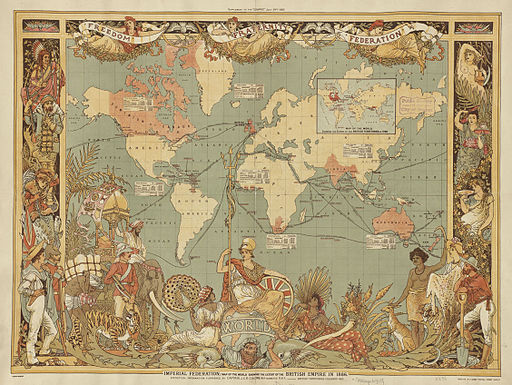A note from our Book Reviews Editor: Thanks for your interest in submitting a review! Kindly note that all of the titles below have now been spoken for. If you would like to suggest an alternate title for review, please feel free to reach out to us at reviews@allegralaboratory.net.
As we wrap up our series on Mobilities and Migration, we are excited to launch our new book review series on settler colonialism, borders and empire!
Settler colonialism provides a framework for deconstructing the logics, scales, and temporalities of domination upon which the consolidation of empire through colonisation depends. Encompassing social, political, and economic dimensions, it accounts for the extra-legal appropriation, clearing, and occupation of territory long-inhabited – violent acts that are paradoxically justified by outrageous claims of “emptiness”, such as in the racist rhetoric of terra nullius, or by denying historical ties to land. As a paradigm, settler colonialism also elucidates the necropolitical governance of so-called Native populations through their dehumanisation, dispossession, and displacement, whether by forcible removal or annihilation. In contemporary geographies as varied as South Africa, Palestine, Kashmir, Canada, Australia, New Zealand, and the United States, among many more, applying a settler colonial lens reveals the bordering mechanisms that divide, partition, and hierarchise people in the interest of upholding settlers’ supremacy.
At Allegra, we recognise the urgency of turning our collective attention toward and dismantling such structures of supremacy, as well as the inequalities, forms of exclusion, and exploitation they perpetuate. The collection of pathbreaking books below thus intentionally crosscuts disciplines, contexts, and continents, all the while training its gaze on the continued violence and lasting legacies of colonial empire.
How to Proceed:
Interested in reviewing one of the books listed below or another book that you believe fits well with this series? We recommend that you begin by taking a look at our contributor guidelines, including the length requirements and suggested publication timeline for reviews. Then, as we receive many requests to review, please send an email to reviews@allegralaboratory.net indicating which book you would like to review, your postal address, and 2-3 sentences explaining how the book relates to your own research or interests. We will get back to you once we have selected the reviewers.
Book List:
Aijazi, Omer. Atmospheric Violence: Disaster and Repair in Kashmir. Philadelphia: University of Pennsylvania Press, 2024.
Atmospheric Violence grapples with the afterlife of environmental disasters and armed conflict and examines how people attempt to flourish despite and alongside continuing violence. Departing from conventional approaches to the study of disaster and conflict that have dominated academic studies of Kashmir, Omer Aijazi’s ethnography of life in the borderlands instead explores possibilities for imagining life otherwise, in an environment where violence is everywhere, or atmospheric.
Bringing the critical study of disaster into conversation with a radical humanist anthropology and the capaciousness of affect theory, held accountable to Black studies and Indigenous studies, Aijazi offers a decolonial approach to disaster studies centering not on trauma and rupture but rather on repair—the social labor through which communities living with disaster refuse the conditions of death imposed upon them and create viable lives for themselves, even amidst constant diminishment and world-annihilation.
/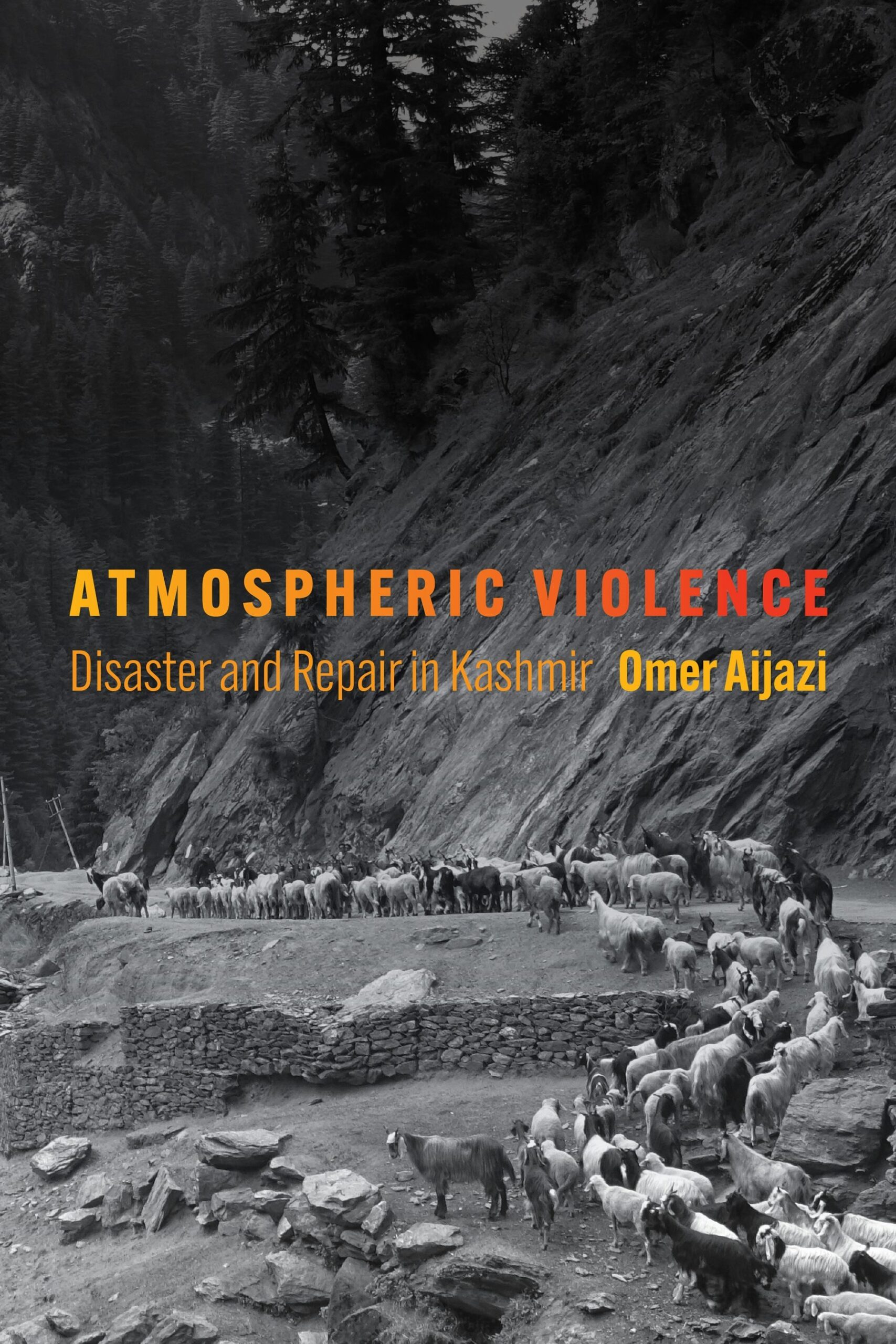
Berda, Yael. Colonial Bureaucracy and Contemporary Citizenship: Legacies of Race and Emergency in the Former British Empire. Cambridge: Cambridge University Press, 2022.
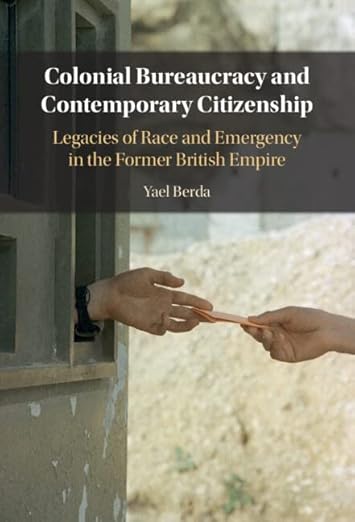
Colonial Bureaucracy and Contemporary Citizenship examines how the legacies of colonial bureaucracy continue to shape political life after empire. Focusing on the former British colonies of India, Cyprus, and Israel/Palestine, the book explores how post-colonial states use their inherited administrative legacies to classify and distinguish between loyal and suspicious subjects and manage the movement of populations, thus shaping the practical meaning of citizenship and belonging within their new boundaries. The book offers a novel institutional theory of ‘hybrid bureaucracy’ to explain how racialized bureaucratic practices were used by powerful administrators in state organizations to shape the making of political identity and belonging in the new states. Combining sociology and anthropology of the state with the study of institutions, this book offers new knowledge to overturn conventional understandings of bureaucracy, demonstrating that routine bureaucratic practices and persistent colonial logics continue to shape unequal political status to this day.
Bhungalia, Lisa. Elastic Empire: Refashioning War through Aid in Palestine. Redwood City: Stanford University Press, 2023.
The United States integrated counterterrorism mandates into its aid flows in the West Bank and Gaza Strip during the early years of the global war on terror. Some two decades later, this securitized model of aid has become normalized across donor intervention in Palestine. Elastic Empire traces how foreign aid, on which much of the Palestinian population is dependent, has multiplied the sites and means through which Palestinian life is regulated, surveilled, and policed—this book tells the story of how aid has also become war.
Drawing on extensive research conducted in Palestine, Elastic Empire offers a novel accounting of the US security state. The US war chronicled here is not one of tanks, grenades, and guns, but a quieter one waged through the interlacing of aid and law. It emerges in the infrastructures of daily life—in a greenhouse and library, in the collection of personal information and mapping of land plots, in the halls of municipal councils and in local elections—and indelibly transfigures lives. Situated in a landscape where the lines between humanitarianism and the global war on terror are increasingly blurred, Elastic Empire reveals the shape-shifting nature of contemporary imperial formations, their realignments and reformulations, their haunted sites, and their obscured but intimate forms.
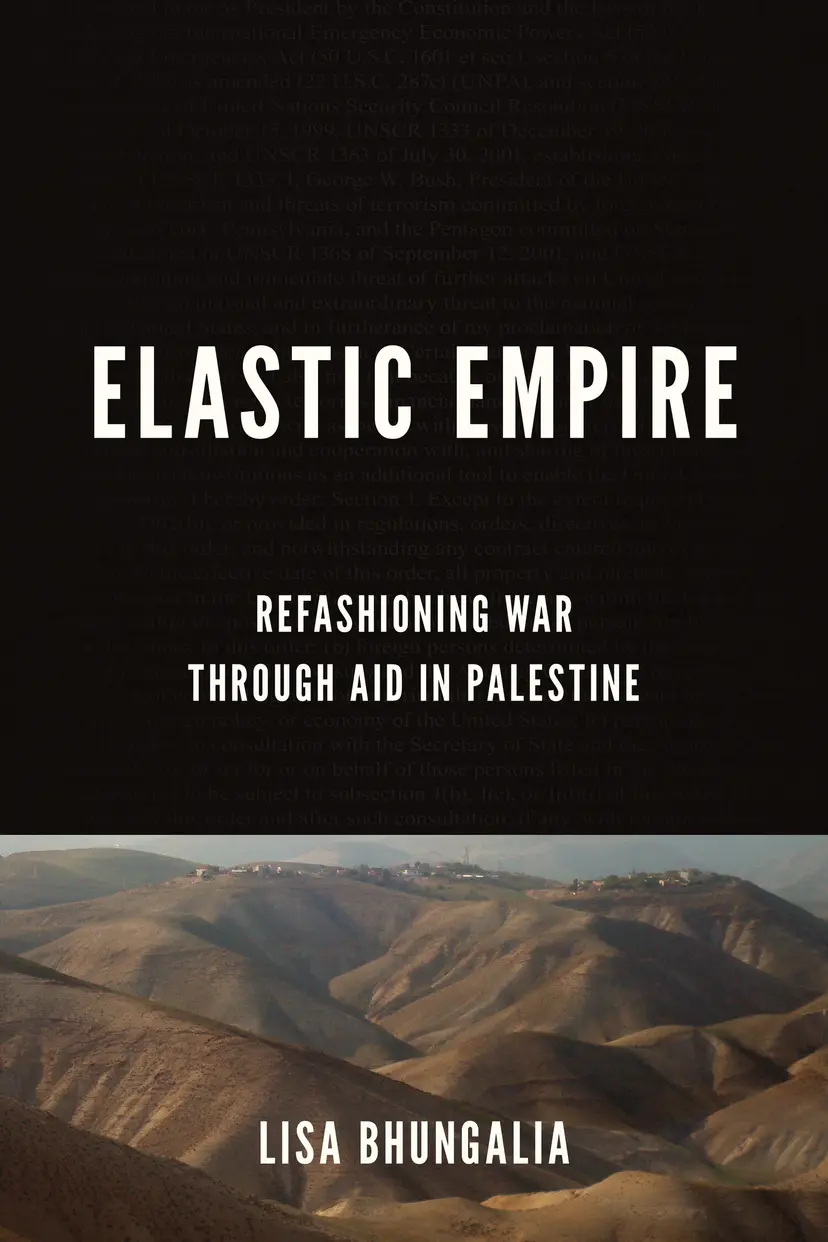
Al-Bulushi, Samar. War-Making as World-Making: Kenya, the United States and the War on Terror. Redwood City: Stanford University Press, 2024.
j 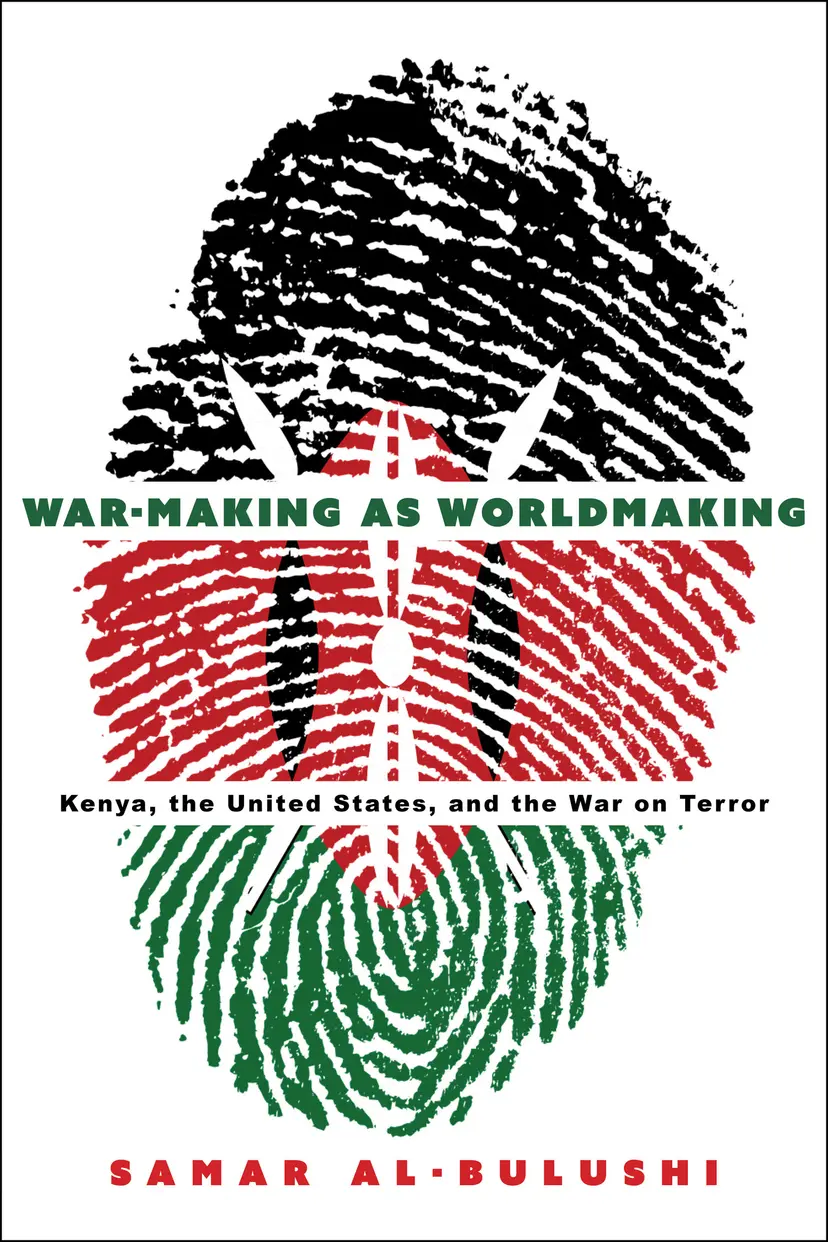
Since Kenya’s invasion of Somalia in 2011, the Kenyan state has been engaged in direct combat with the Somali militant group Al-Shabaab, conducting airstrikes in southern Somalia and deploying heavy-handed police tactics at home. As the hunt for suspects has expanded within Kenya, Kenyan Muslims have been subject to disappearances and extrajudicial killings at the hands of U.S.-trained Kenyan police.
War-Making as Worldmaking explores the entanglement of militarism, imperialism, and liberal-democratic governance in East Africa today. Samar Al-Bulushi argues that Kenya’s emergence as a key player in the “War on Terror” is closely linked—but not reducible to—the U.S. military’s growing proclivity to outsource the labor of war. Attending to the cultural politics of security, Al-Bulushi illustrates that the war against Al-Shabaab has become a means to produce new fantasies, emotions, and subjectivities about Kenya’s place in the world. Meanwhile, Kenya’s alignment with the U.S. provides cover for the criminalization and policing of the country’s Muslim minority population.
Doble, Josh, Liam Liburd and Emma Parker, eds. British Culture After Empire: Race, Decolonisation and Migration Since 1945. Manchester: Manchester University Press, 2024.
British culture after Empire is the first collection of its kind to explore the intertwined social, cultural and political aftermath of empire in Britain from 1945 up to and beyond the Brexit referendum of 2016, combining approaches from the fields of history, English and cultural studies. Against those who would deny, downplay or attempt to forget Britain’s imperial legacy, the various contributions expose and explore how the British Empire and the consequences of its end continue to shape Britain at the local, national and international level. As an important and urgent intervention in a field of increasing relevance within and beyond the academy, the book offers fresh perspectives on the colonial hangovers in post-colonial Britain from up-and-coming as well as established scholars.
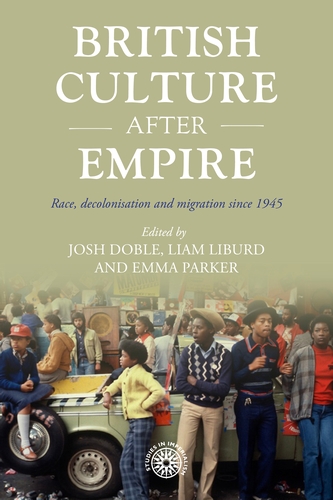
Egbers, Vera and Christa Kamleithner, Özge Sezer and Alexandra Skedzuhn-Safir, eds. Architectures of Colonialism: Constructed Histories, Conflicting Memories. Berlin: De Gruyter, 2024.
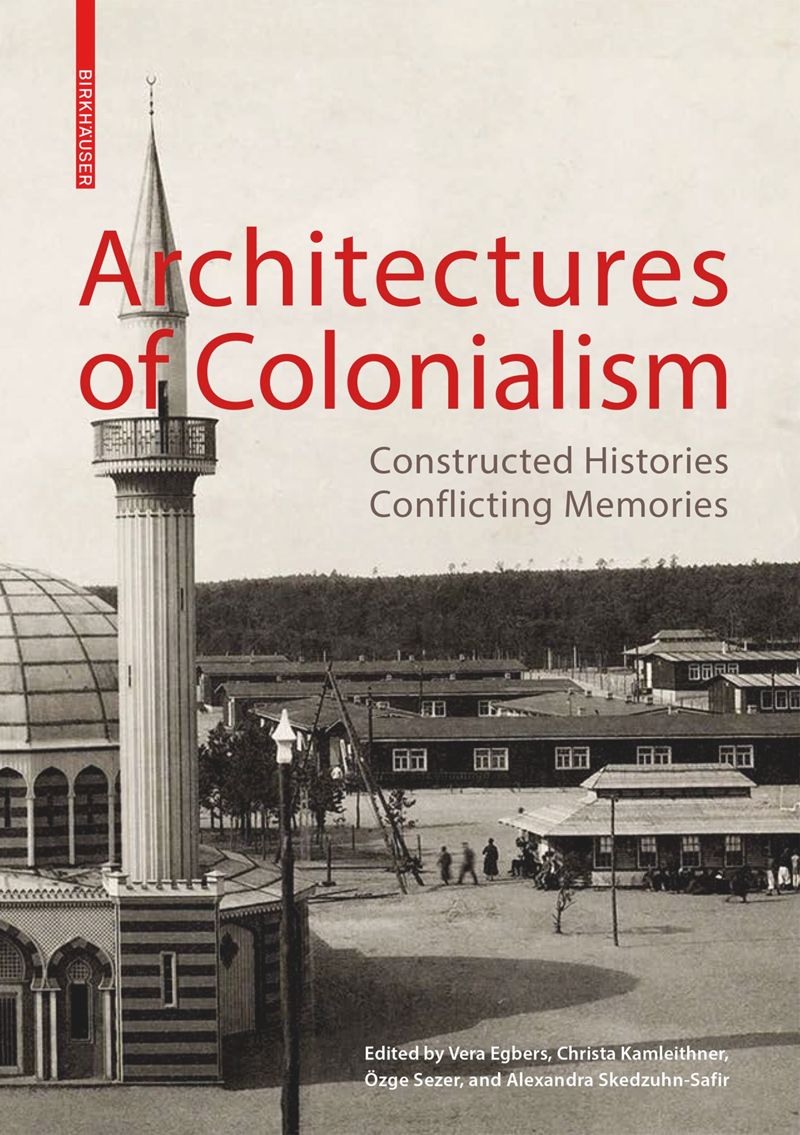
The question of what heritage is and how we deal with it is not a neutral one. Recent events such as the Black Lives Matter movement and the toppling of monuments have made evident how much the colonial past is inscribed in our built environment; at the same time, colonialism continues to affect memorialization and historiography. Hence, those involved in architectural history are challenged to re-consider their positionality. Whose heritage are colonial sites? Which possibly silenced memories are attached to them? How are archives and material evidence reassessed to bring forward the stories of marginalized subjects? Following the call for decolonization, this volume explores historical methodologies and shows the entanglement of narratives at architectural sites, bringing together archaeology, architectural history, and heritage studies.
Hanieh, Adam, Rob Knox, and Rafeef Ziadah. Palestine: Imperialism, Fossil Capitalism and Race. London: Verso, 2025.
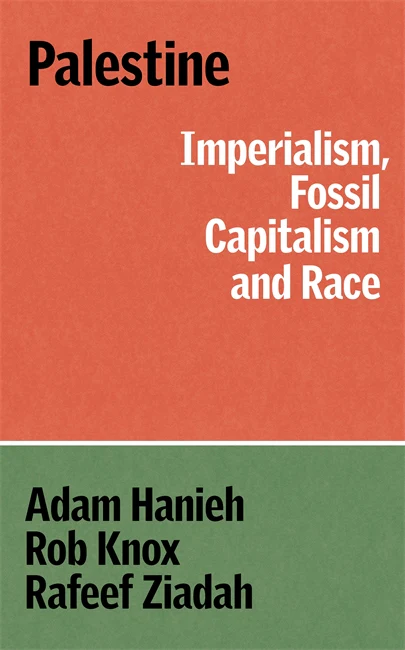
A critical examination of the ongoing struggle in Palestine. This essential read provides clarity on the intertwined relationships of global capitalism, energy politics, and racial oppression, and challenges readers to rethink their understanding of Palestine. Dismantling the simplistic narratives that dominate mainstream discourse, Hanieh, Knox and Ziadah present a nuanced materialist analysis grounded in anti-imperialism. The authors argue that the Palestinian situation cannot be fully understood without considering the broader historical and regional dynamics of Western imperialism and capitalist accumulation. By integrating the roles of imperialism, fossil capitalism, and racialization, this book offers a thorough critique of the socio-economic and political forces that sustain the Israeli settler-colonial project and the unwavering support it receives from Western powers.
Lee, A. J. Yumi and Karen R. Miller. Prehistories of the War on Terror: A Critical Genealogy. Philadelphia: University of Pennsylvania Press, 2024.
Prehistories of the War on Terror examines the longstanding American project of classifying enemies who challenge U.S. power abroad as terrorists. To do so, the volume brings disparate episodes of U.S. military empire-building into dialogue across time and space. From settler colonial wars in the nineteenth-century American West to twentieth-century wars of conquest in Asia and the Pacific, the collection’s essays argue that the United States has drawn both materially and ideologically on older systems of empire in the conflicts through which it has waged the present-day War on Terror.
Attending to the local histories from which these conflicts emerged and examining the effects of U.S. intervention in these sites, contributors analyze the cultural frameworks for understanding and remembering past conflicts that confirm, challenge, or refigure the logics of the War on Terror. This volume reveals how contestations over sovereignty, extraction, and inequality must be suppressed and flattened in public discourse to maintain a coherent vision of a totalizing War on Terror. Together, the contributors illustrate that there was no single road that led to 9/11 or the War on Terror. Rather, they argue that we must follow multiple paths into the past to fully understand our present and to fight for a more just future.
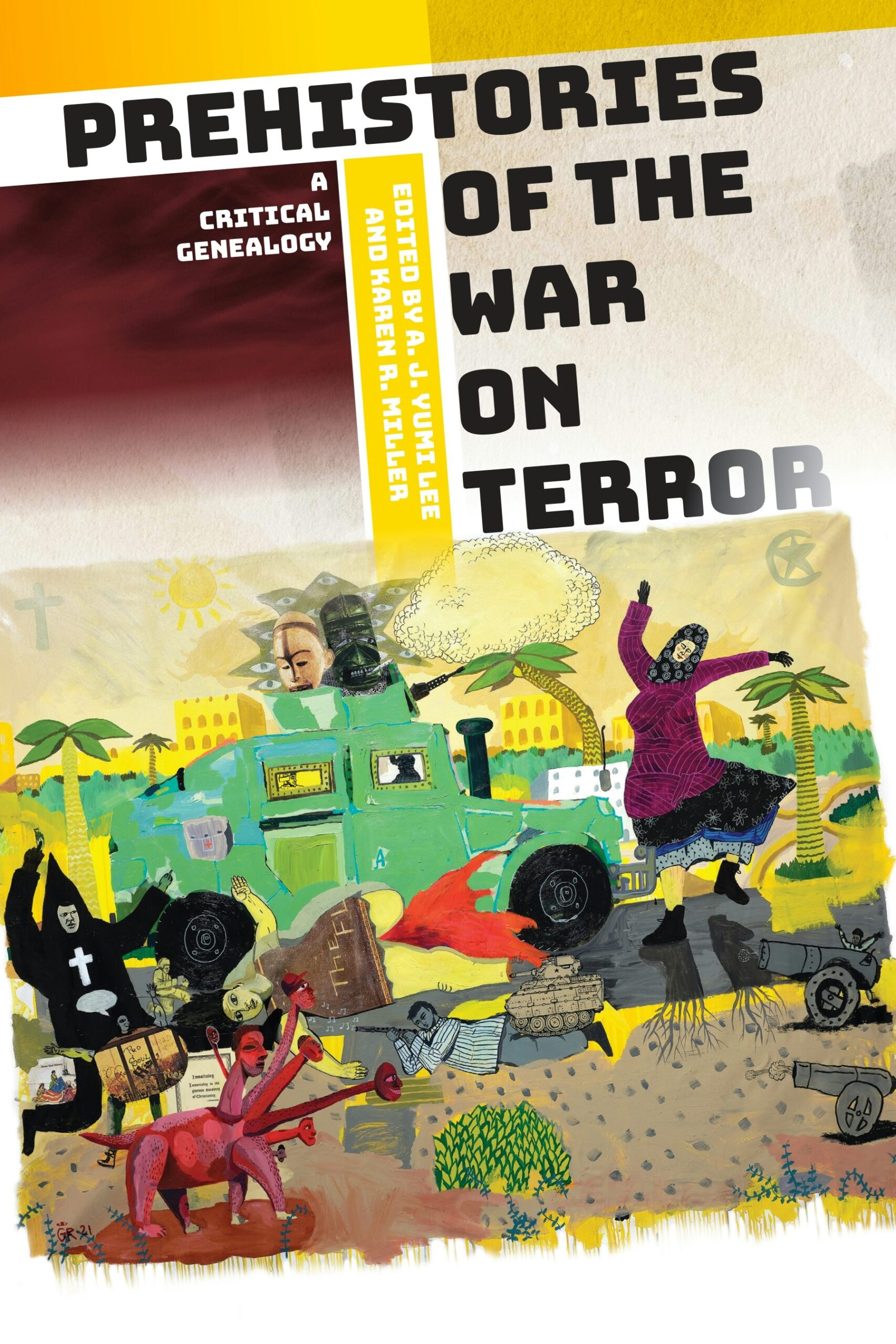
Levy, Gideon. The Killing of Gaza: Reports on a Catastrophe. Translated by David B. Green. London: Verso, 2024.
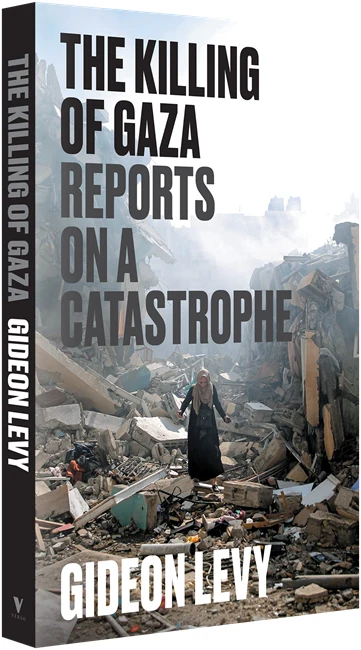
Gideon Levy is one of the most respected critics of Israel’s apartheid policies against the Palestinian people. He is the outspoken award-winning journalist who has been writing on the conflict for decades. In The Killing of Gaza, he brings together his on-the-ground perspectives of the events leading up to the 7th October and the ensuing devastation of Gaza. His clear-eyed analysis is a vital aperture into current events but he also brings essential historical and political context to the moment. He is unafraid to speak truth to power, and his work is an urgent rebuttal to the propaganda that is distributed through the mainstream liberal press, throughout the world. Levy’s words should be read by anyone who wants to get the heart of this most brutal conflict and see for themselves that silence is no longer possible in the face of such atrocity.
Loewenstein, Antony. The Palestine Laboratory: How Israel Exports the Technology of Occupation around the World. London: Verso, 2023.
Israel’s military industrial complex uses the occupied, Palestinian territories as a testing ground for weaponry and surveillance technology that they then export around the world to despots and democracies. For more than 50 years, occupation of the West Bank and Gaza has given the Israeli state invaluable experience in controlling an “enemy” population, the Palestinians. It’s here that they have perfected the architecture of control.
Best-selling journalist Antony Loewenstein, author of Disaster Capitalism, uncovers this largely hidden world in a global investigation with secret documents, revealing interviews and on-the-ground reporting. This book shows in-depth, for the first time, how Palestine has become the perfect laboratory for the Israeli military-techno complex: surveillance, home demolitions, indefinite incarceration and brutality to the hi-tech tools that drive the ‘Start-up Nation’. From the Pegasus software that hacked Jeff Bezos’ and Jamal Khashoggi’s phones, the weapons sold to the Myanmar army that has murdered thousands of Rohingyas and drones used by the European Union to monitor refugees in the Mediterranean who are left to drown. Israel has become a global leader in spying technology and defence hardware that fuels the globe’s most brutal conflicts. As ethno-nationalism grows in the 21st century, Israel has built the ultimate model.
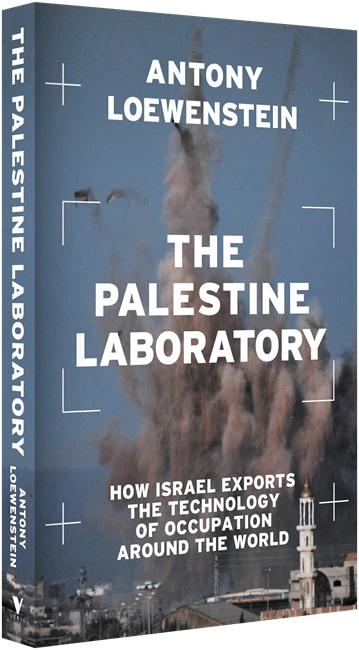
Lu, Sidney Xu. Collaborative Settler Colonialism: Japanese Migration to Brazil in the Age of Empires. Berkeley: University of California Press, 2025.
kl 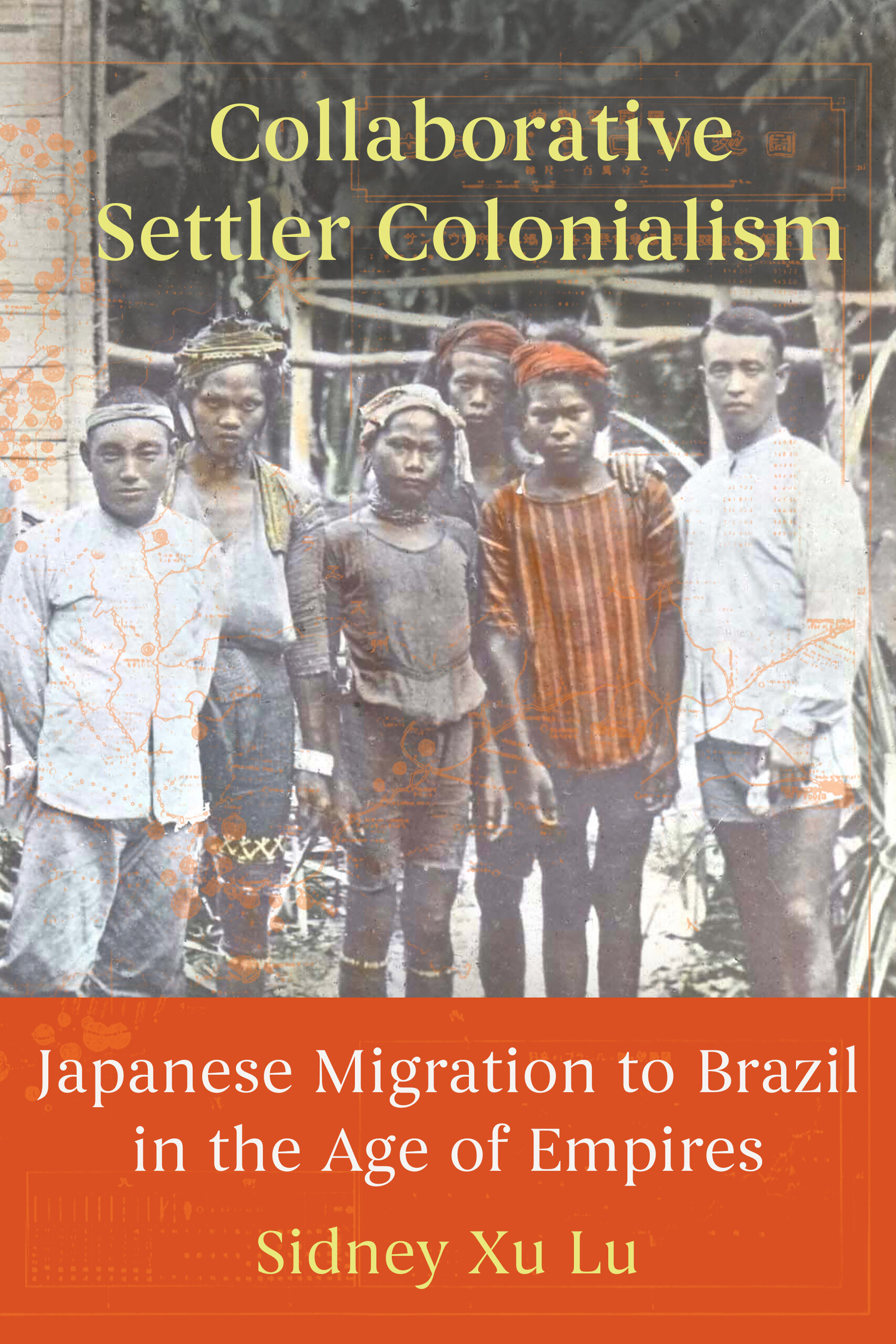
Though Japanese migration to Brazil started only at the turn of the twentieth century, Brazil is now the country with the largest ethnic Japanese population outside Japan. Collaborative Settler Colonialism examines this history as a central chapter of both Brazil’s and Japan’s processes of nation and empire building, and, crucially, as a convergence of their settler colonial projects. Inspired by American colonialism and the final conquest of the U.S. Western frontier, Brazilian and Japanese empire builders collaborated to bring Japanese migrant workers to Brazil, which had the outcome of simultaneously dispossessing Indigenous Brazilians of their land and furthering the expansion of Japanese land and resource possession abroad. Bringing discourses of Latin American and Japanese settler colonialism into rare dialogue with each other, this book offers new insight into understanding the Japanese empire, the history of immigration in Brazil and Latin America, and the past and present of settler colonialism.
Malm, Andreas. The Destruction of Palestine is the Destruction of the Earth. London: Verso, 2024.
Israel’s pulverization of Gaza since October 7, 2023 is not only a humanitarian crisis, but an environmental catastrophe. Far from the first event of its kind, the devastation Israel has inflicted on Palestine since October 2023 has merely ushered in a new phase in a long history of colonization and extraction that reaches back to the nineteenth century. In this book, Andreas Malm argues that a true understanding of the present crisis requires a longue durée analysis of Palestine’s subjugation to fossil empire. Returning to the British empire’s first use of steam-power in war, in which it destroyed the Palestinian city of Akka, Malm traces the development of Britain’s fossil empire and shows how this enduring commitment to fossil energy continues to drive Western support for the destruction of Palestine today.
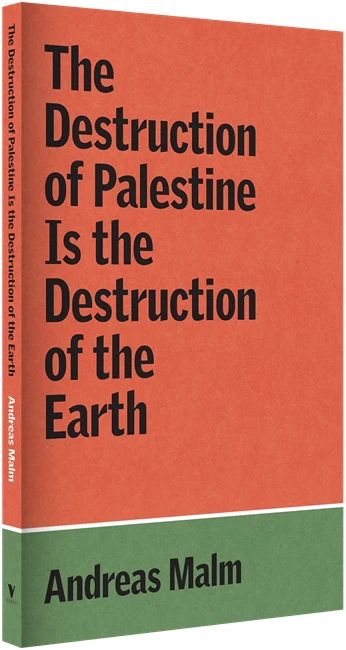
Omar, Abdaljawad. Freeing Palestine: The Making of the Palestinian Resistance. London: Verso, 2025.
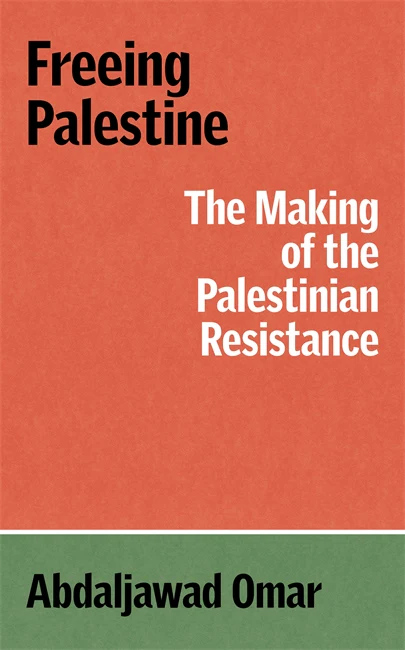
The events of October 7 have tested the limits of Western solidarity with Palestinians’ struggle for liberation from Israeli occupation. Far from an irrational eruption of violence, however, this short and accessible book demonstrates how the shift to armed resistance is not merely an ideological choice but a material necessity arising from the concrete reality of three decades of Palestinian confrontation with settler colonialism, beginning with the first Intifada. Through a rigorous examination of both the Palestinian resistance’s material conditions and ideological formations, this work aims to reveal the inexorable logic that propels the resistance forward, asserting its ethical imperative against the backdrop of colonial oppression.
Raz, Adam. Loot: How Israel Stole Palestinian Property. Translated by Philip Hollander. London: Verso, 2024.
During the 1948 War, Israeli fighters and residents alike plundered Palestinian homes, shops, businesses, and farms. This bitter truth was then suppressed or forgotten over the coming years. Tens of thousands took part in the pillage of Palestinian property, stealing the belongings of their former neighbours. The implications of this mass looting go far beyond the personality or moral fibre of those who took part. Plundering served a political agenda by helping to empty the country of its Palestinian residents. In this context, it was part of the prevailing policy during the war – one designed to crush the Palestinian economy, destroy villages, and to confiscate and sometimes destroy crops and harvests remaining in the depopulated zones. The participating Jewish public became a stakeholder, motivated to prevent Palestinian residents from returning to the villages and cities they had left. These ordinary people were mobilized in the push for the segregation of Jews and Arabs in the early years of statehood.
With painstaking original research into primary sources, Adam Raz has brought to light a tragic moment in the history of a conflict that roils the region and the wider world. As the details of the Nakba are understood and documented, redress for Palestinian grievances comes closer to reality.
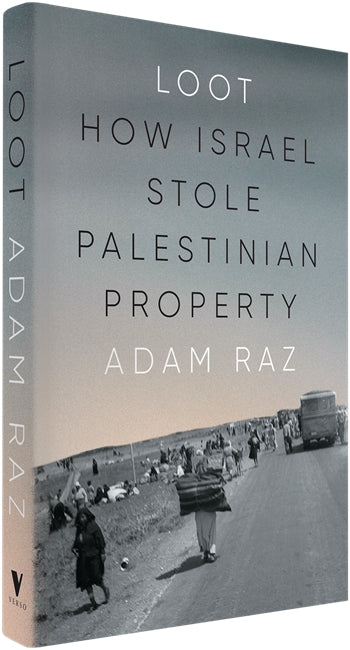
Sabbagh-Khoury, Areej. Colonizing Palestine: The Zionist Left and the Making of the Palestinian Nakba. Redwood City: Stanford University Press, 2023.
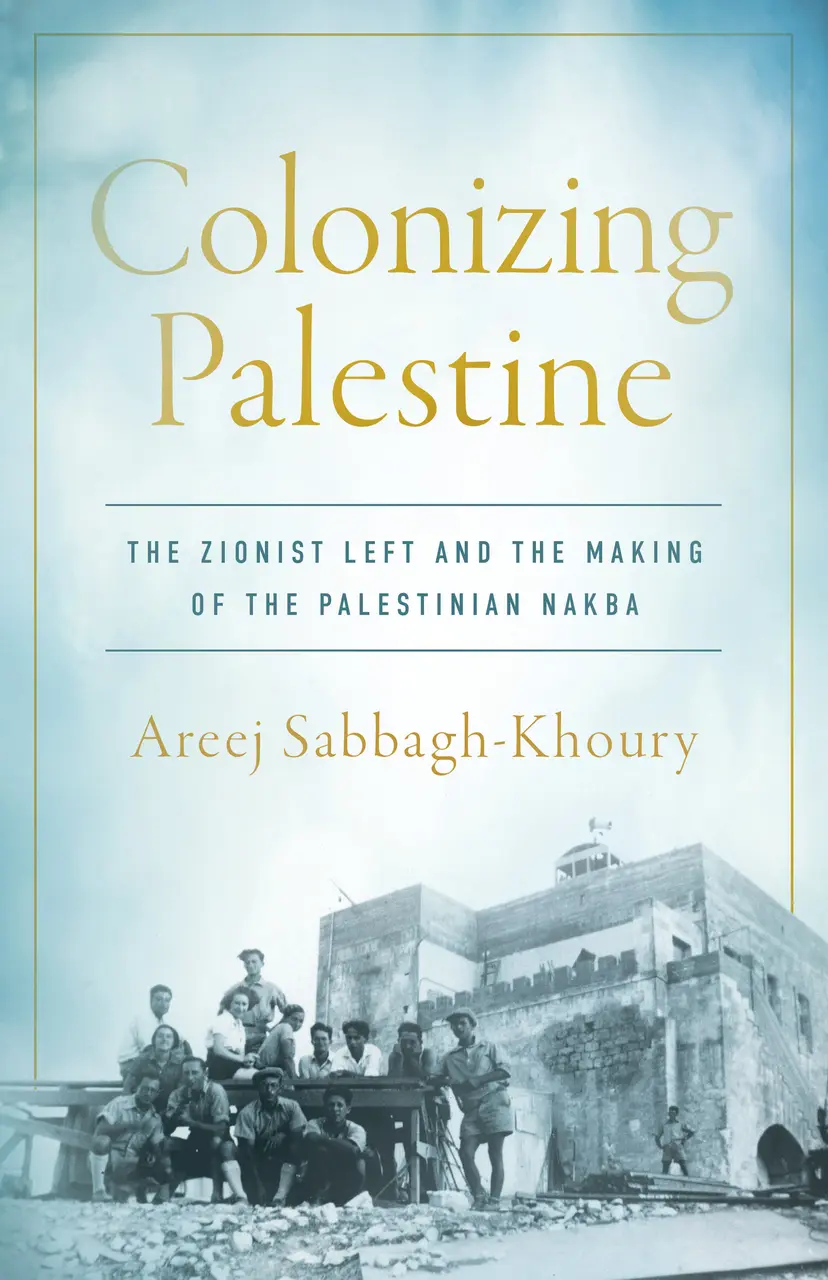
Among the most progressive of Zionist settlement movements, Hashomer Hatzair proclaimed a brotherly stance on Zionist-Palestinian relations. Until the tumultuous end of the British Mandate, movement settlers voiced support for a binational Jewish-Arab state and officially opposed mass displacement of Palestinians. But, Hashomer Hatzair colonies were also active participants in the process that ultimately transformed large portions of Palestine into sovereign Jewish territory. Areej Sabbagh-Khoury investigates this ostensible dissonance, tracing how three colonies gained control of land and their engagement with Palestinian inhabitants on the edges of the Jezreel Valley/Marj Ibn ‘Amer.
Based on extensive empirical research in local colony and national archives, Colonizing Palestine offers a microhistory of frontier interactions between Zionist settlers and indigenous Palestinians within the British imperial field. Even as left-wing kibbutzim of Hashomer Hatzair helped lay the groundwork for settler colonial Jewish sovereignty, its settlers did not conceal the prior existence of the Palestinian villages and their displacement, which became the subject of enduring debate in the kibbutzim. Juxtaposing history and memory, examining events in their actual time and as they were later remembered, Sabbagh-Khoury demonstrates that the dispossession and replacement of the Palestinians in 1948 was not a singular catastrophe, but rather a protracted process instituted over decades. Colonizing Palestine traces social and political mechanisms by which forms of hierarchy, violence, and supremacy that endure into the present were gradually created.
Tatour, Lana and Ronit Lentin, eds. Race and the Question of Palestine. Redwood City: Stanford University Press, 2024.
This book develops from the position that the colonization of Palestine—like other imperial and settler colonial projects—cannot be understood outside the grammar of race. Race and the Question of Palestine explores how race operates as a technology of power and colonial rule, a political and economic structure, a set of legal and discursive practices, and a classificatory system.
Offering a wide-ranging set of essays by historians, legal scholars, political scientists, sociologists, literary scholars, and race critical theorists, this collection illuminates how race should be understood in terms of its political work, and not as an identity category interchangeable with ethnicity, culture, or nationalism. Essays build on a long-standing tradition of theorizing race in Palestine studies and speak to four interconnected themes—the politics of racialization and regimes of race, racism and antiracism, race and capital accumulation, and Black–Palestinian solidarity. These engagements challenge the exceptionalism of the Palestinian case, and stress the importance of locating Palestine within global histories and present politics of imperialism, settler colonialism, capitalism, and heteropatriarchy.
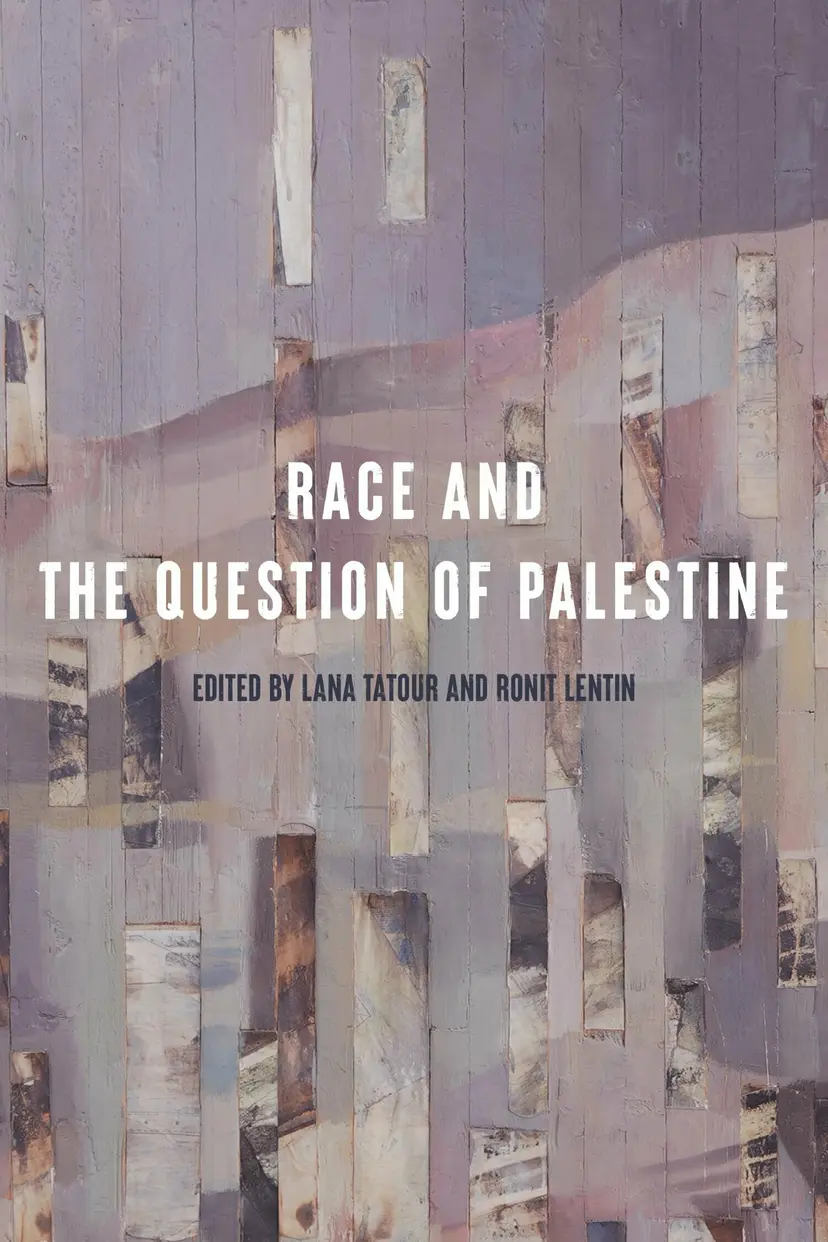
Wind, Maya. Towers of Ivory and Steel: How Israeli Universities Deny Palestinian Freedom. London: Verso, 2024.
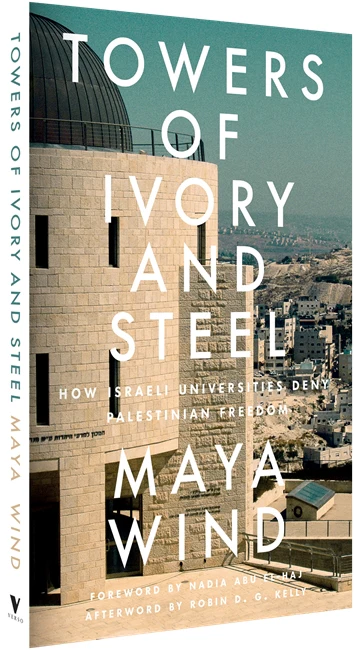
Israeli universities have long enjoyed a reputation as liberal bastions of freedom and democracy. Drawing on extensive research and making Hebrew sources accessible to the international community, Maya Wind shatters this myth and documents how Israeli universities are directly complicit in the violation of Palestinian rights.
As this book shows, Israeli universities serve as pillars of Israel’s system of oppression against Palestinians. Academic disciplines, degree programs, campus infrastructure, and research laboratories all service Israeli occupation and apartheid, while universities violate the rights of Palestinians to education, stifle critical scholarship, and violently repress student dissent. Towers of Ivory and Steel is a powerful expose of Israeli academia’s ongoing and active complicity in Israel’s settler-colonial project.

